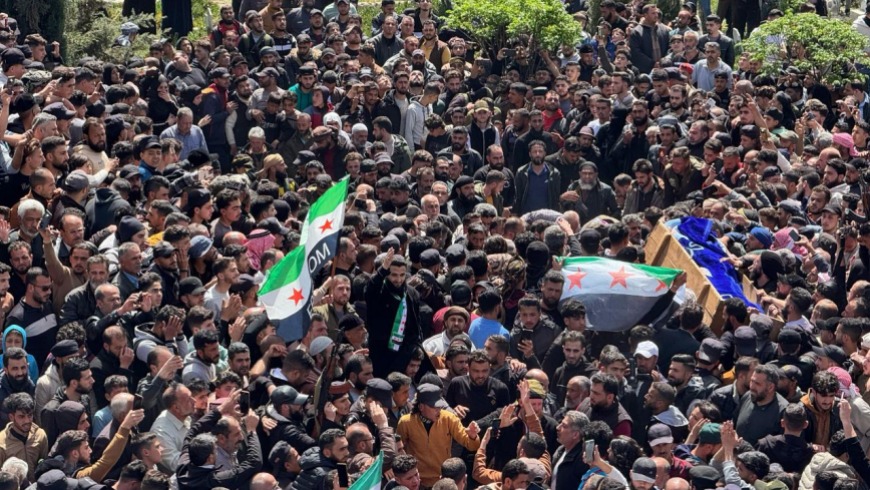A major Israeli military escalation unfolded this week across southern and central Syria, combining intense airstrikes with large-scale ground incursions into Daraa and Quneitra provinces. The operations left several Syrian soldiers and civilians dead or injured and were widely interpreted as a deliberate message to both Damascus and Ankara amid shifting regional dynamics.
Ground Incursions in Daraa and Quneitra
On Wednesday night and into Thursday morning, Israeli forces deployed dozens of armoured vehicles—tanks and troop carriers—into the Jabiliyah Dam forest area near the city of Nawa in western Daraa province, as well as into agricultural and wooded areas near the separation line with the occupied Golan Heights in Quneitra. Local sources described the maneuvers as the largest Israeli ground presence in southern Syria in recent years.
Eyewitnesses reported that the incursion was met with sporadic resistance from local fighters and members of the so-called “popular resistance,” especially in areas that have seen heightened mobilization since the fall of the Assad regime. Armed primarily with light and medium weapons, these groups attempted to halt or disrupt the Israeli advance.
The Israeli military has not issued detailed statements on the ground operation, though Israeli media characterized the move as a “preventive maneuver” aimed at uncovering weapons caches and monitoring Iranian-affiliated movements across the border region. Flares were launched over several villages near the Golan Heights, fueling fears of an imminent confrontation along the southern front.
Wave of Airstrikes Across Central Syria
Simultaneously, Israeli warplanes carried out a barrage of coordinated airstrikes across Damascus, Hama, and the Homs countryside. Within a 30-minute window, five different sites were hit—resulting in multiple explosions, widespread panic among civilians, and the near-total destruction of the Hama Military Airport, according to Syria’s Ministry of Foreign Affairs.
The ministry strongly condemned the attacks, calling them a blatant violation of Syrian sovereignty and international law. It urged the international community to take a decisive stance against what it described as repeated and unlawful Israeli aggression.
Dozens of civilians and military personnel were injured in the strikes, with the full extent of damage and casualties still under assessment. Syrian officials stated that the airstrikes targeted military and intelligence infrastructure, further undermining Damascus’s efforts to reassert control over key areas of the country.
A Message to Damascus—and Ankara
Observers believe the timing and scope of the Israeli operations are strategic, reflecting growing Israeli concerns about renewed Iranian entrenchment and Hezbollah activity near the Israeli-Syrian border. The incursion and airstrikes are also seen as a warning to Turkey, which has reportedly stepped up its involvement in Syrian affairs, including intentions to take over operations at the T-4 airbase in Homs.
Analysts suggest that Israel’s actions mark a shift in military posture—from an exclusive reliance on air power to a more assertive combination of air and ground operations in contested areas. With Syria’s new transitional government still struggling to restore authority along its borders, the southern front is becoming an increasingly volatile theatre for regional power contests.
While there have been no confirmed Israeli casualties and few details from the Israeli side, the operations have heightened fears among residents in the south that wider confrontations could erupt—especially as foreign powers continue to maneuver within Syria’s fractured post-war landscape.
This article was translated and edited by The Syrian Observer. The Syrian Observer has not verified the content of this story. Responsibility for the information and views set out in this article lies entirely with the author.


